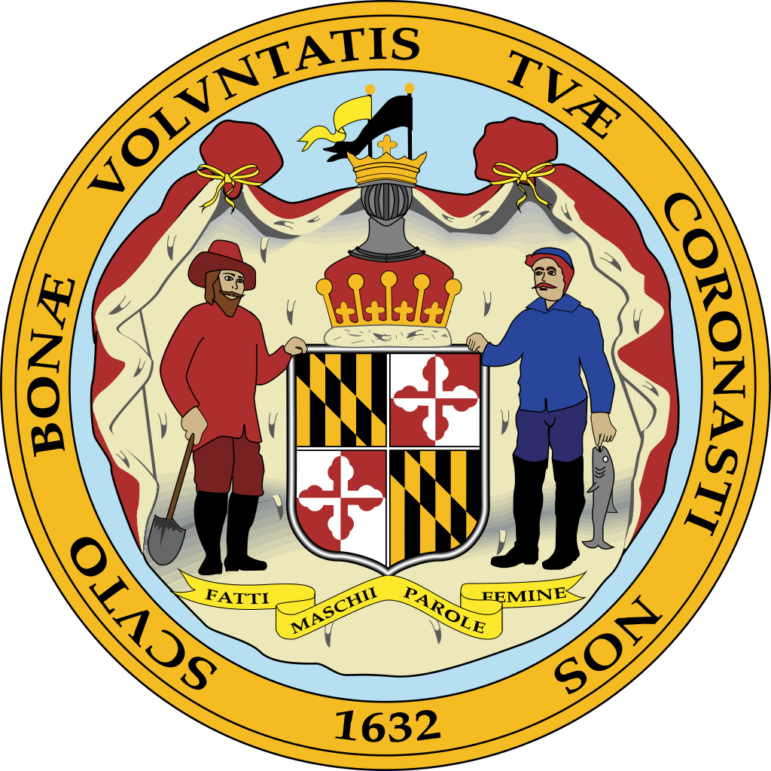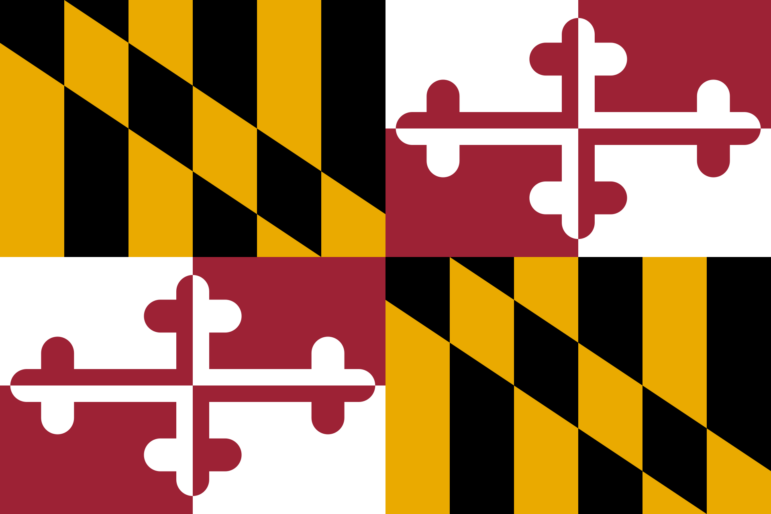ANNAPOLIS, Maryland- A Maryland legislator aims to clear the names of those accused, tried, or convicted of witchcraft before the American Revolution. Del. Heather Bagnall (D-Anne Arundel) explained to Washington Top News that while Salem, Massachusetts, is often synonymous with witch trials, Maryland’s history includes seven documented cases of witchcraft accusations—some resulting in convictions, and one in execution.
Bagnall’s interest in the topic arose after constituents brought the issue to her attention. Though it may seem unusual for modern legislation, she argued that it remains relevant today. “The more I looked into it, the more I thought this is still really relevant today,” Bagnall noted. Accusations of Witchcraft could “drive people out of professions, to drive them out of their homes, to reclaim their estates and their fortunes. It was very, very dangerous.”

Seal of Maryland
Bagnall emphasized that in the 17th and 18th centuries, witchcraft accusations were often used to dispossess individuals, ruin reputations, and force people from their communities. The term “witch hunt” persists today as a metaphor for unjust persecution.
The history of Maryland’s witchcraft trials differs from the more infamous episodes in New England, such as the Salem witch trials. Established as a Catholic colony under Lord Baltimore in 1634, Maryland fostered greater religious tolerance than its Puritan neighbors, resulting in fewer accusations and trials.
The first recorded witchcraft trial in Maryland occurred in 1654 when a woman named Mary Lee was accused by her neighbor. Unlike in Puritan New England, where accusations often led to convictions and harsh punishments, Lee was acquitted due to insufficient evidence. The colony’s legal framework required a higher burden of proof, likely contributing to fewer prosecutions.
While women were the primary targets, Bagnall noted that men were also occasionally accused. For example, John Cowman of Calvert County was sentenced to death in 1674, though his punishment was later reduced to servitude. “He was sentenced to death, but his sentence was commuted to labor,” Bagnall said.
In 1685, the most prominent case involved Rebecca Fowler of Calvert County, who was accused of “familiarity with the devil.” Unlike earlier trials, Fowler was convicted and executed, making her one of the few in Maryland’s history to suffer capital punishment for witchcraft. Her execution marked a brief period when fears of witchcraft mirrored those in neighboring colonies.
Witchcraft trials in Maryland peaked in the late 17th century but were less severe and more sporadic than in other regions. By the early 18th century, societal attitudes had shifted, and legal action against suspected witches declined, reflecting broader trends toward rationalism and Enlightenment thought.
Rebecca Fowler remains Maryland’s only known execution for witchcraft.
However, another accusation is more famous having inspired the character in the 1999 film, “The Blair Witch Project.”

Flag of Maryland
“Moll Dyer is the one that people are most familiar with, even if they don’t realize that they’re most familiar with her,” Bagnall said. Moll Dyer lived in St. Mary’s County and was accused in 1697 following an influenza outbreak. Forced from her home, which was set ablaze, Dyer fled into the woods and reportedly died of exposure.
Bagnall’s proposed resolution seeks to exonerate those accused and acknowledge the trauma inflicted on their descendants. “We’ve never formally recognized that these accusations and convictions were wrong,” she stated, underscoring the need to rectify this historical injustice.
Overall, Maryland’s witchcraft trials were fewer than those in Massachusetts and Connecticut. They represent a nuanced chapter in colonial history, where religious diversity and legal prudence tempered the hysteria seen elsewhere.
Bagnall told Washington Top News that the resolution is necessary because the accusations, trials, and execution caused “trauma and shame that wrongfully continued to affect the families of the accused.”
“We’ve never exonerated the people who were harmed. We’ve never gone back and said this was wrong. They never should have been accused. They certainly never should have been convicted,” she said.
The Wild Hunt is not responsible for links to external content.
To join a conversation on this post:
Visit our The Wild Hunt subreddit! Point your favorite browser to https://www.reddit.com/r/The_Wild_Hunt_News/, then click “JOIN”. Make sure to click the bell, too, to be notified of new articles posted to our subreddit.